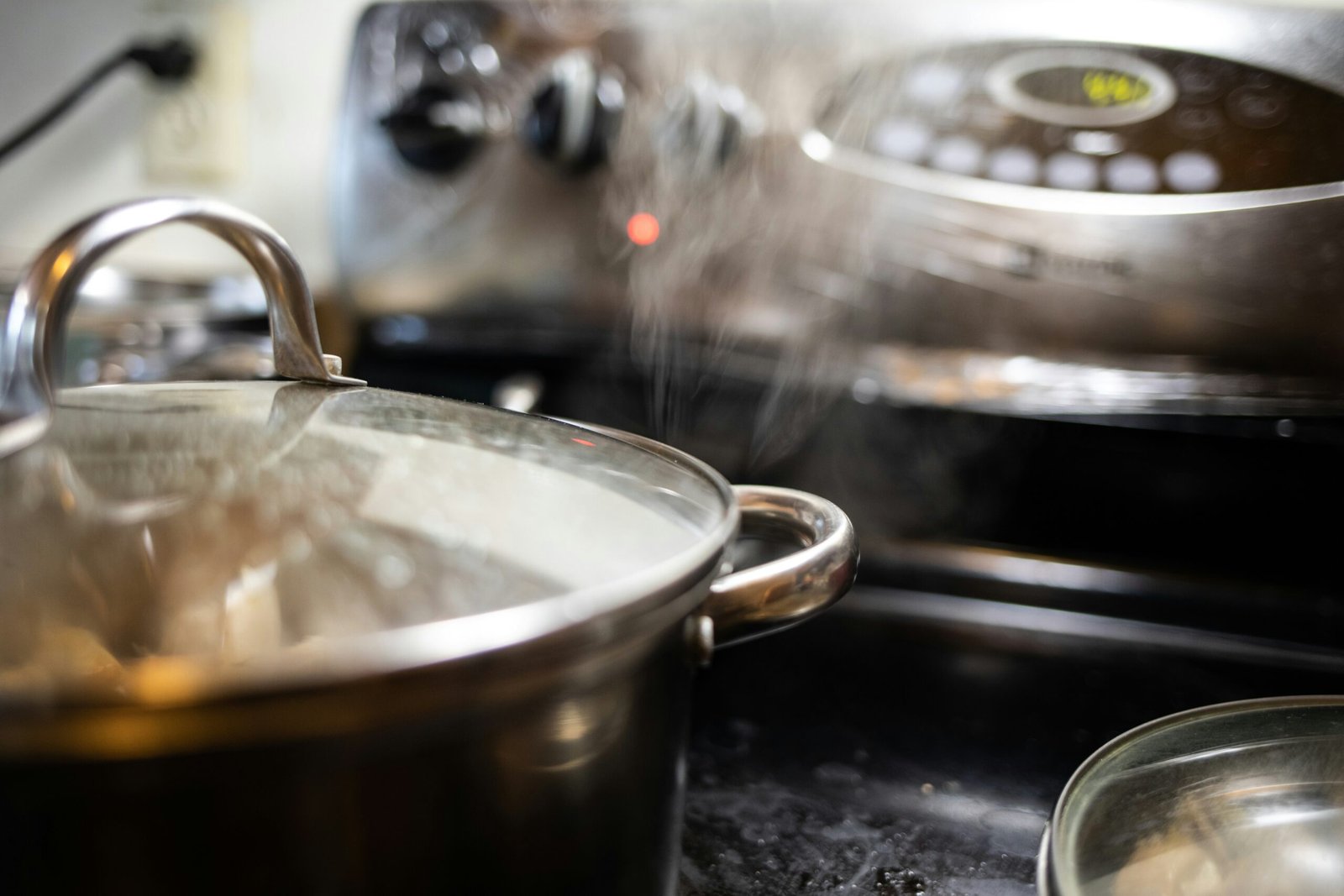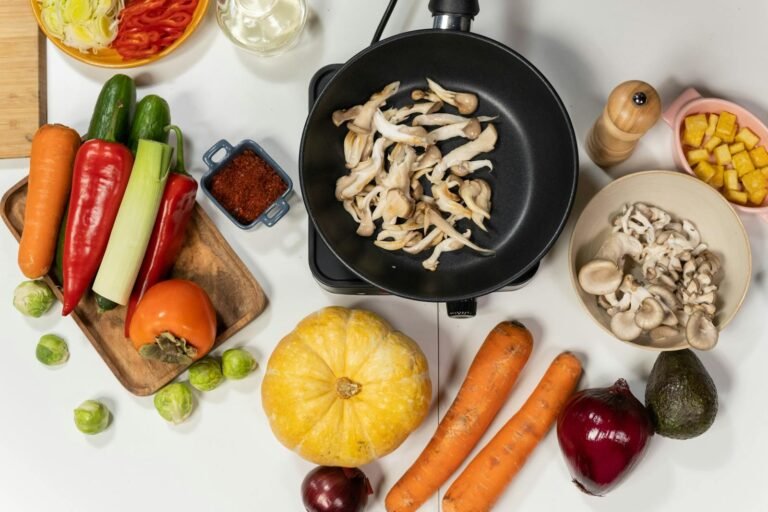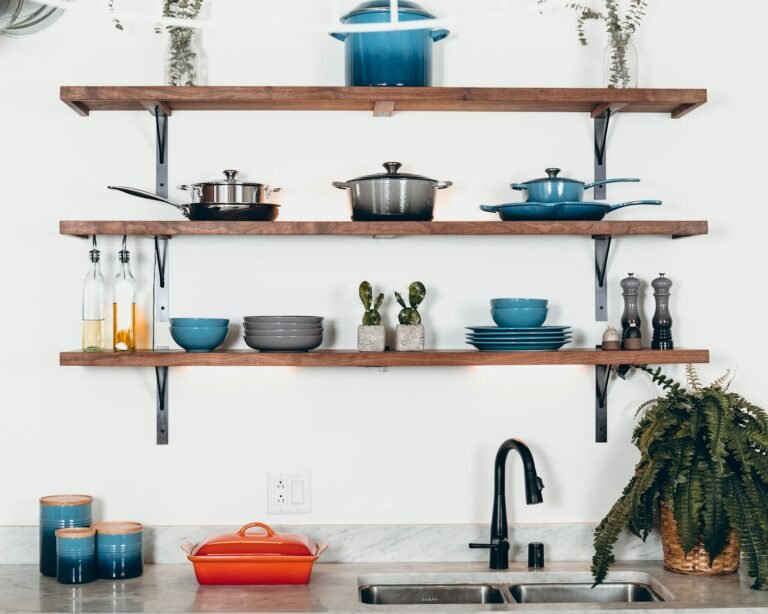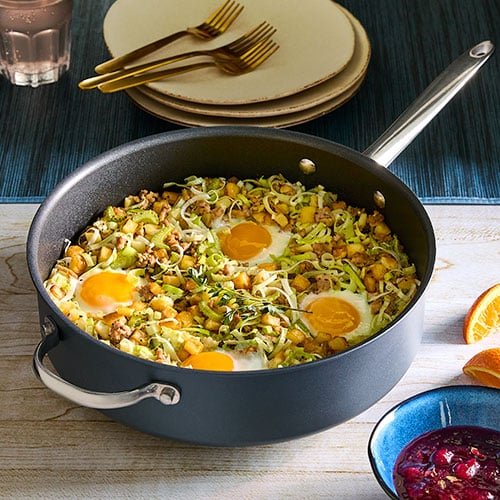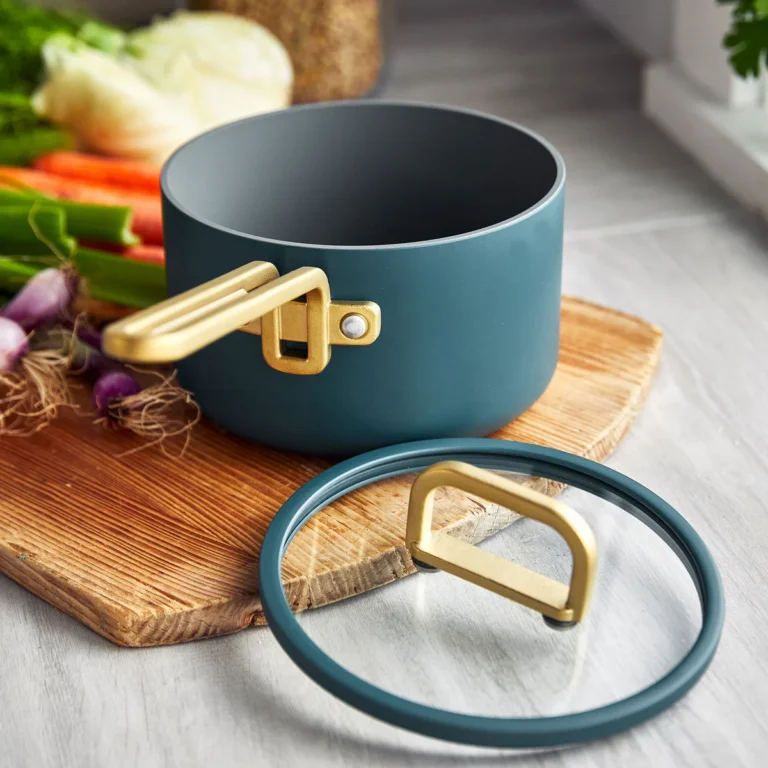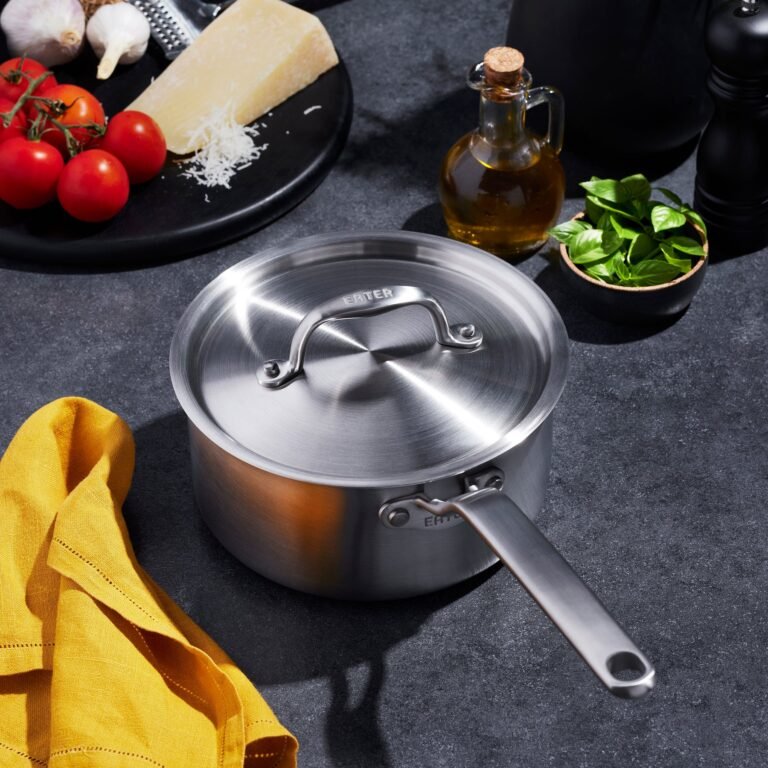Best Pots For Boiling Eggs – The Ultimate Guide
In this article our goal is to find the Best Pots For Boiling Eggs. Boiling eggs is a seemingly simple culinary task that can yield perfect results when done correctly. However, achieving consistently impeccable boiled eggs involves more than just following a set time limit; the choice of pot plays a crucial role. A well-suited pot ensures a stable, even temperature that is essential for cooking the egg whites and yolks uniformly. The result is eggs that are easy to peel, with a texture that suits various culinary applications.
The advantages of perfectly boiled eggs extend far beyond breakfast. In salads, sandwiches, or as a quick protein snack, boiled eggs are versatile and nutritious. With the right pot, one can master the art of boiling eggs, catering to specific preferences, whether soft, medium, or hard-boiled. Using an appropriately sized pot provides adequate space for the eggs to circulate, which helps in preventing cracks and ensures even cooking.
Introduction to Boiling Eggs: Why the Right Pot Matters
Moreover, the material and construction of the pot affect the heat retention and distribution. Stainless steel, non-stick, or aluminum—each type serves different needs and has varying benefits. Selecting the right pot can save time, enhance efficiency, and lead to consistently excellent results. The importance of this seemingly minor detail cannot be overstated, as it contributes significantly to perfecting the humble boiled egg.
In summary, the choice of the pot is fundamentally linked to the quality of the boiled eggs produced. From ensuring even cooking to making peeling easier and maintaining the nutritional integrity of the eggs, the right pot is invaluable. Whether for a simple breakfast or as an ingredient in complex recipes, perfecting the boiling process can elevate one’s culinary skills, making boiled eggs a reliable and delightful addition to any meal.
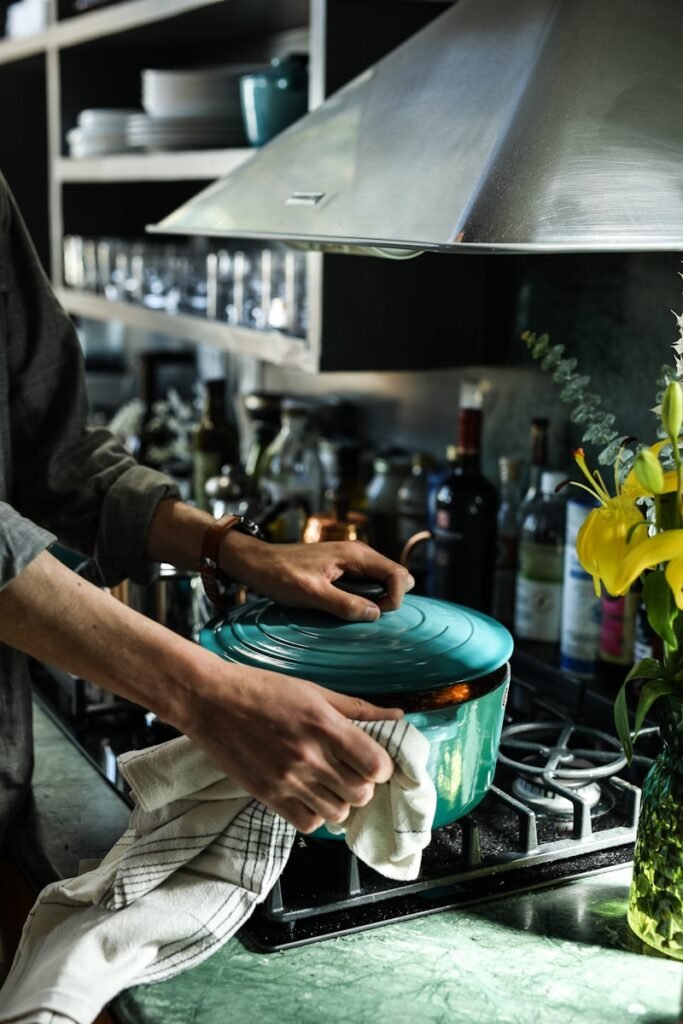
Best Pots For Boiling Eggs: An Overview
When it comes to boiling eggs, selecting the right pot can significantly influence the ease and outcome of the process. There are several types of pots available, each offering unique features tailored to different cooking needs.
Stainless Steel Pots: Renowned for their durability and resistance to rust and staining, stainless steel pots are a staple in many kitchens. These pots provide even heating, which is essential for boiling eggs uniformly. They are easy to clean and maintain, making them a practical choice for regular use. Moreover, they come in various sizes, allowing for flexibility based on the quantity of eggs you wish to boil.
Non-Stick Pots: Non-stick pots offer the advantage of easy cleanup due to their coated interior surface. This type of pot ensures that eggs do not stick to the bottom, reducing the chance of breakage. Non-stick pots often feature a lighter weight compared to other materials, making them easy to handle. However, careful handling is required to avoid scratching the non-stick surface.
Cast Iron Pots: Known for their excellent heat retention and even heat distribution, cast iron pots can be a reliable choice for boiling eggs. These pots maintain consistent temperatures, helping to cook the eggs uniformly. Cast iron pots are highly durable and can last a lifetime with proper care. They do, however, require seasoning to maintain their non-stick properties and prevent rust.
Electric Egg Cookers: For a more specialized approach, electric egg cookers offer convenience and precision. Designed specifically for boiling eggs, these appliances can cook multiple eggs at once, often with options for soft, medium, or hard-boiled results. They typically come with built-in timers and automatic shut-off features, taking the guesswork out of the process.
Multi-Purpose Pots: Multi-purpose pots, such as those with steamer inserts or multi-cooker functionalities, provide versatility in the kitchen. These pots can handle various cooking tasks, including boiling eggs, making them a versatile addition to any cookware collection. The ability to use one pot for multiple functions can save space and reduce the need for numerous specialized pots.
Understanding the various types of pots available for boiling eggs can help you choose the one that best suits your cooking style and preferences. Each type offers distinct advantages, ensuring there is an option for every kitchen scenario.
When it comes to boiling eggs, stainless steel pots are often a preferred choice for many due to their numerous advantageous features. One of the significant benefits of using a stainless steel pot is its unparalleled durability. Stainless steel is resistant to rust, corrosion, and staining, ensuring that the pot remains in pristine condition even after frequent use. Additionally, stainless steel pots are renowned for their superb heat distribution, providing an even cooking temperature that prevents hot spots and consequently reduces the risk of overcooking or undercooking eggs.
Another notable advantage of stainless steel pots is that they are non-reactive with food. This means that the material does not interact with acidic or alkaline ingredients, preserving the natural flavor of the boiled eggs and ensuring that no unwanted metallic taste is imparted to the food. This feature also makes stainless steel pots easier to clean, as they do not absorb food flavors or odors.
However, stainless steel pots are not without their drawbacks. One potential issue is that food, including eggs, can sometimes stick to the bottom of the pot if not properly attended to. To mitigate this, it’s often recommended to use a bit of oil or to bring water to a boil before adding the eggs. Additionally, stainless steel pots can be relatively heavy compared to their aluminum or non-stick counterparts, which might be a consideration for users prioritizing lightweight cookware.
For those interested in purchasing a high-quality stainless steel pot, there are numerous options available on Amazon. For example, the All-Clad D3 Stainless Steel Pot is a top-rated 3-quart saucepan known for its exceptional heat retention and durability. Another excellent option is the Cuisinart Chef’s Classic Stainless Steel 4-Quart Saucepan, which features a constructed bottom for even heating and a tight-fitting lid to lock in flavors. Both pots are applauded for their robust build and consistent performance, making them ideal choices for boiling eggs.

Non-Stick Pots for Boiling Eggs
Non-stick pots have become a popular choice for those looking to boil eggs with minimal hassle. These pots are designed with a special coating that prevents food from adhering to the surface, significantly easing the cleanup process. This feature is particularly beneficial when boiling eggs, as it helps avoid the frustrating experience of eggs sticking to the pot—a common issue with traditional cookware.
The convenience of non-stick pots cannot be overstated. They require less oil or butter, making them a healthier option. The smooth surface also ensures that eggs retain their pristine appearance, free from unsightly residue or unexpected sticking. This makes non-stick pots an excellent choice for quick, easy, and consistent results.
However, there are some cons to consider. Over time, the non-stick coating can degrade, especially if exposed to high temperatures or abrasive cleaning tools. This wear and tear not only reduces the pot’s effectiveness but also raises health concerns. Some non-stick coatings contain chemicals like PFOA (perfluorooctanoic acid), which may leach into food at high temperatures, potentially posing health risks. It’s essential to choose high-quality non-stick pots made with safer materials to mitigate these concerns.
Despite these drawbacks, several non-stick pots stand out for their functionality and user satisfaction. Recommended options include the T-fal B36262 Specialty Nonstick, renowned for its durability and effective non-stick surface.

Similarly, the Calphalon Classic Nonstick pot offers excellent heat distribution and easy cleanup, making it a reliable choice for boiling eggs.
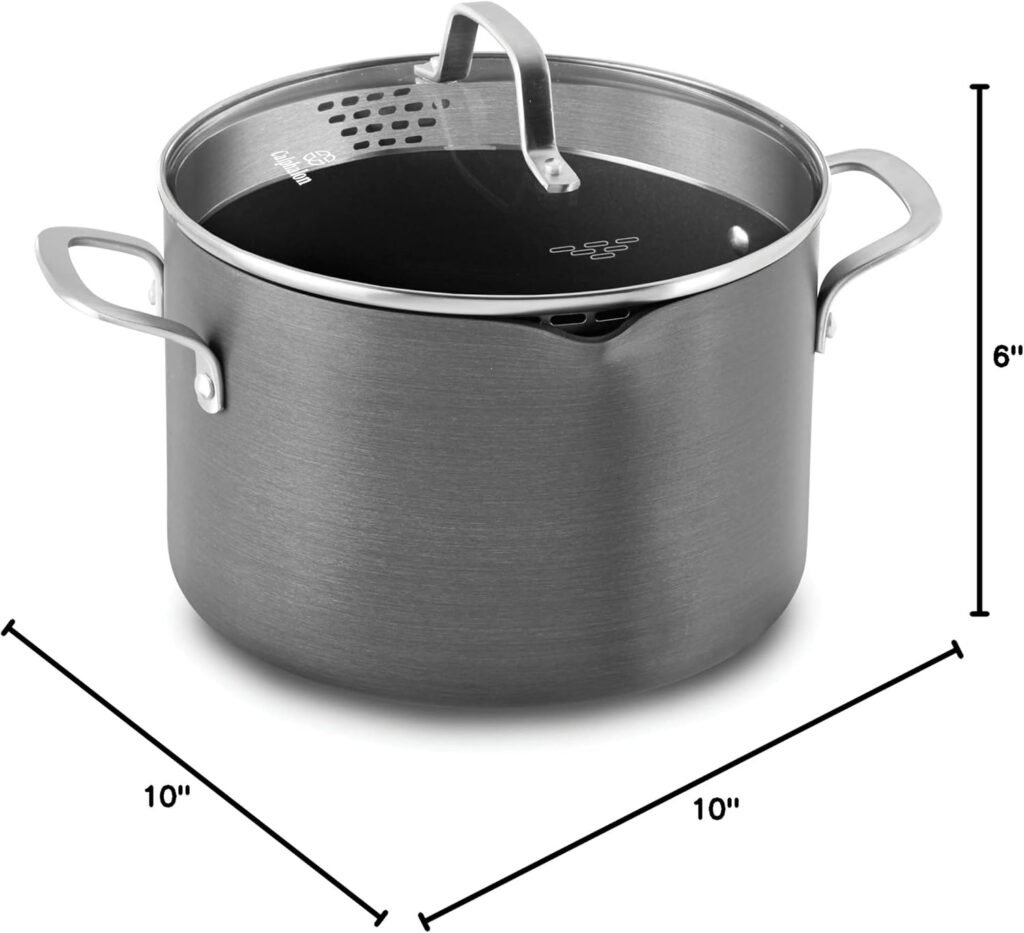
Another notable mention is the Rachael Ray Cucina Nonstick pot, praised for its stylish design and high-performing coating.

In choosing a non-stick pot for boiling eggs, weigh the convenience and ease of use against the potential long-term drawbacks. Opt for high-quality, reputable brands to ensure a balance of safety and efficiency.
Cast Iron Pots for Boiling Eggs
Cast iron pots offer a distinctive set of attributes that can significantly influence your egg boiling experience. One of their foremost advantages is exceptional heat retention. Cast iron’s ability to maintain consistent heat ensures that the eggs are cooked evenly, which is crucial for attaining perfectly boiled eggs. Alongside this, the versatility of cast iron pots is noteworthy. These pots can transition seamlessly from stovetop to oven, making them suitable for a variety of cooking methods beyond just boiling eggs.
Moreover, cast iron pots are renowned for their durability. When properly maintained, a cast iron pot can last for generations. This longevity means that you get more than just a pot for boiling eggs; you invest in a durable kitchen tool that serves myriad purposes. However, cast iron pots are not without drawbacks. Their considerable weight can make them cumbersome, particularly when full of water and eggs. Furthermore, maintenance can be a chore; they require regular seasoning to prevent rust and ensure a non-stick surface.
Despite these limitations, many high-quality cast iron pots are adequately suited for boiling eggs. One such example is the Lodge L8DD3 Cast Iron Double Dutch Oven, which boasts a capacity ample for multiple eggs along with sturdy handles for easier maneuvering.
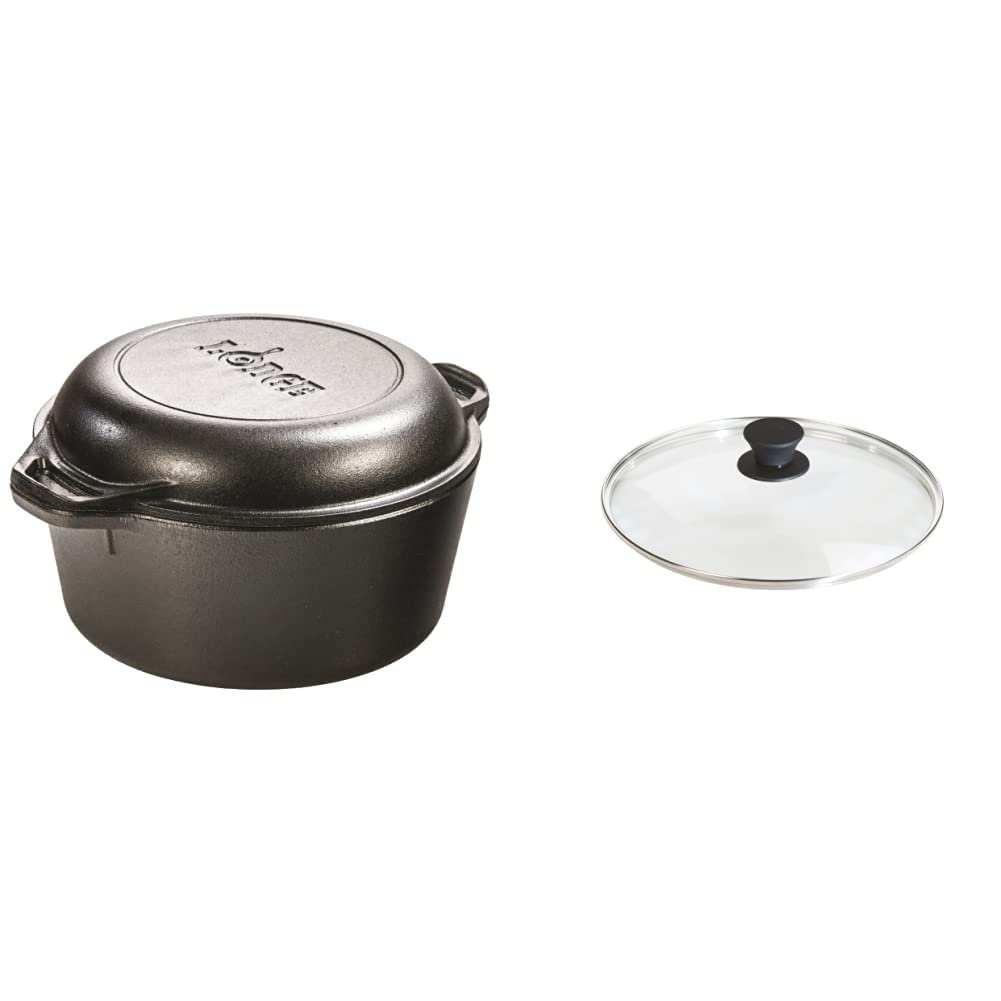
Another excellent choice is the Camp Chef Pre-Seasoned Cast Iron Dutch Oven, which comes pre-seasoned and ready for use, a feature that alleviates some of the maintenance concerns associated with cast iron.
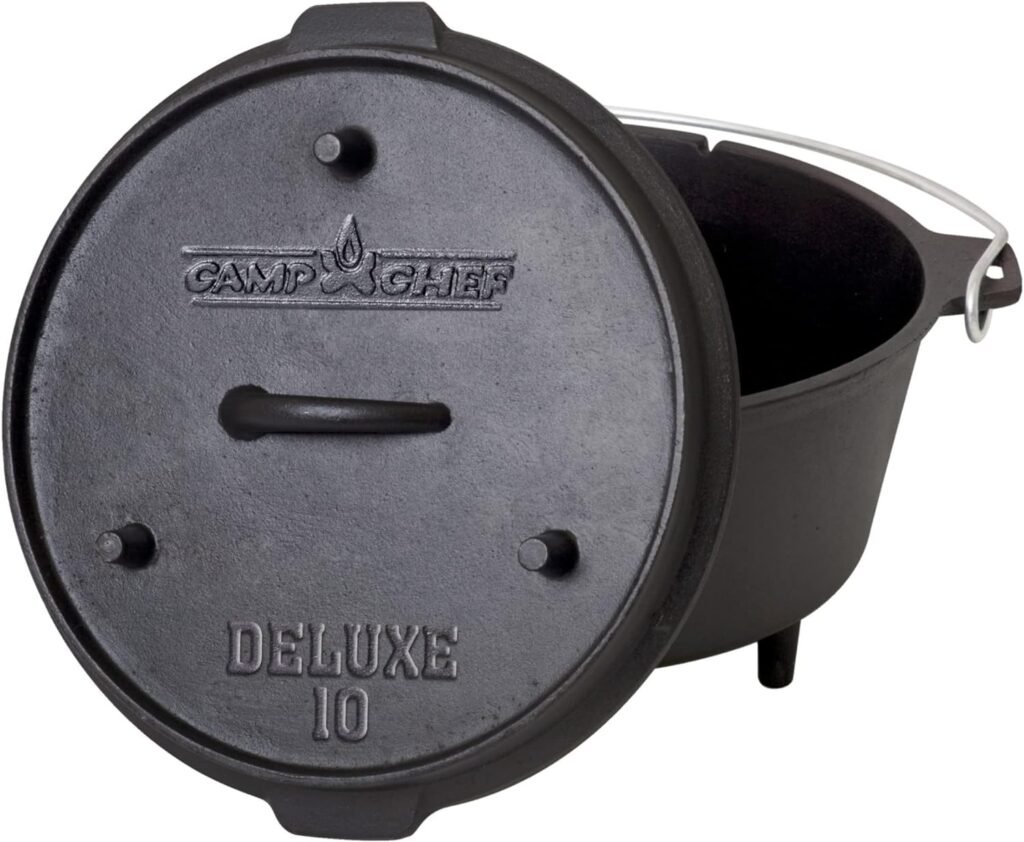
In summary, while cast iron pots might require a bit more effort in maintenance and handling, their remarkable heat retention, robustness, and flexibility make them compelling options for boiling eggs to precision.
Electric Egg Cookers: A Modern Solution
As an alternative to the traditional pots used for boiling eggs, electric egg cookers have emerged as a modern and efficient solution for households. These devices offer a significant advantage in terms of precision; they are designed to provide consistent cooking times, ensuring that your eggs are boiled to perfection every time with minimal effort. Most electric egg cookers come with settings to choose the desired firmness, whether you prefer soft, medium, or hard-boiled eggs.
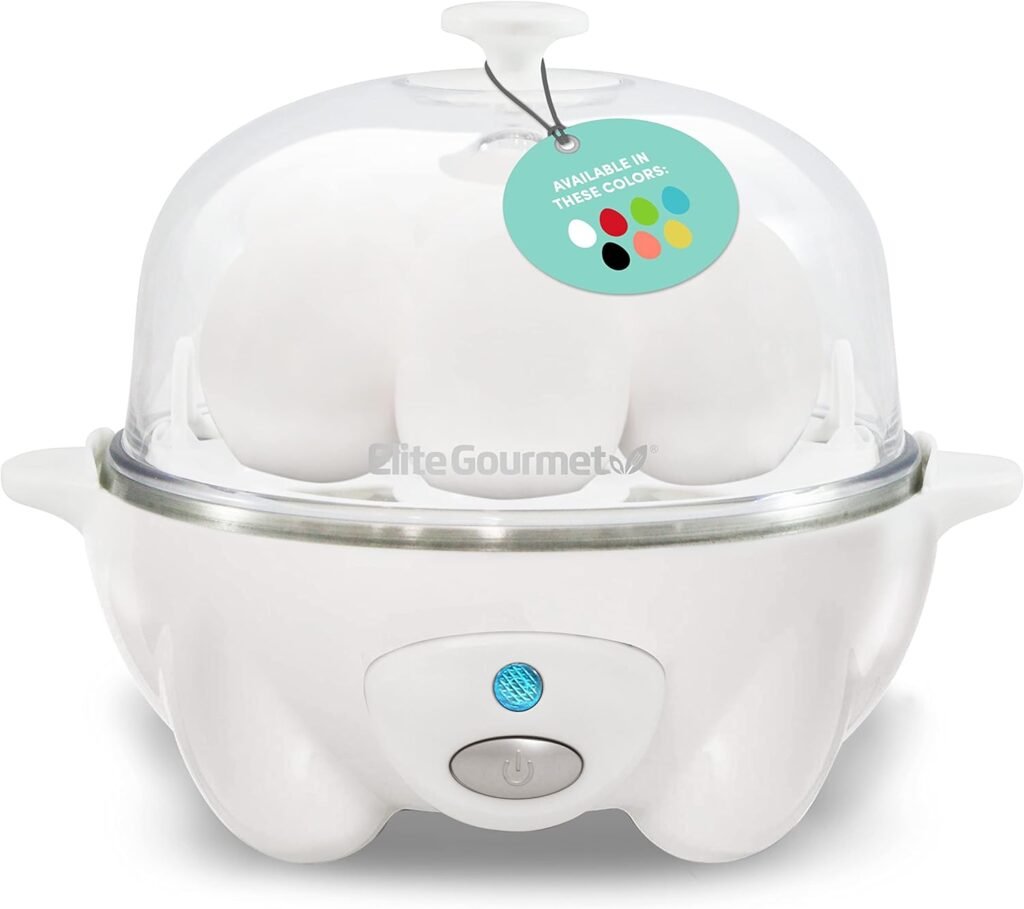
Dash Rapid Egg Cooker: Known for its compact design and ability to boil up to six eggs at once.
One of the most notable benefits of electric egg cookers is their ability to handle multiple eggs simultaneously. This feature can be highly convenient for families or individuals who consume eggs regularly. Typically, these cookers can handle between six and twelve eggs at a time, streamlining your morning routine by offering a hands-off approach to egg boiling.
Besides convenience, another key advantage is consistency. Traditional methods often result in eggs that are either undercooked or overcooked. Electric egg cookers eliminate this problem through their automated systems, which control the cooking process with a timer. This ensures that each batch of eggs maintains the perfect level of doneness, tailored to individual preferences.

- Cuisinart CEC-10 Central Egg Cooker: Offers ten egg capacity with a stylish stainless-steel finish.
However, electric egg cookers are not without their drawbacks. One primary disadvantage is their limited capacity compared to stovetop methods, particularly for larger families or gatherings. Additionally, since these devices rely on electricity, they may not be suitable in areas with unstable power supply or during power outages.
For those interested in trying out an electric egg cooker, here are a few popular options available on Amazon:
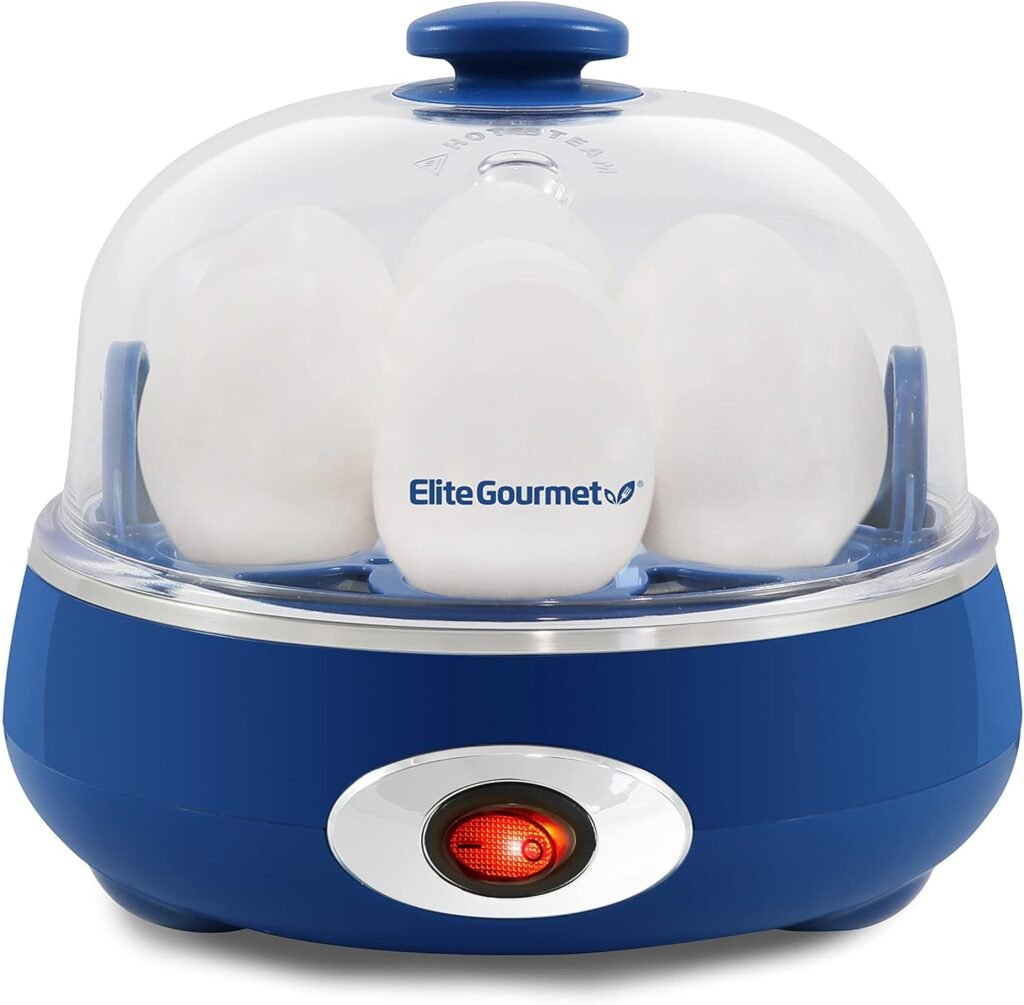
- Elite Gourmet Easy Egg Cooker: Features a seven egg capacity and auto shut-off function for safety.
Multi-Purpose Pots: Versatility at Its Best
Multi-purpose pots, such as Instant Pots and pressure cookers, are highly versatile kitchen appliances that offer functionality beyond just boiling eggs. These devices are capable of preparing a wide variety of meals ranging from soups and stews to rice and yogurt. Their versatility makes them a valuable addition to any kitchen, catering to both novice and experienced cooks.
One of the primary benefits of multi-purpose pots is their programmable settings, which allow users to customize cooking times and methods according to their specific needs. This feature not only simplifies the cooking process but also ensures consistent and precise results. For instance, most models come with pre-set options for different types of food, including eggs, which can be cooked to hard, medium, or soft-boiled perfection in a matter of minutes. The speed and efficiency of multi-purpose pots are unmatched, making them an excellent choice for those with a busy lifestyle.
However, the complexity of multi-purpose pots can be a downside for some users. The numerous functions and settings can be overwhelming, particularly for those who are not tech-savvy or unfamiliar with pressure cooking. Additionally, these pots tend to come with a higher price tag compared to traditional pots, which may be a deterrent for budget-conscious consumers. Despite these potential drawbacks, the convenience and versatility they offer often outweigh the initial learning curve and cost.
For those considering the purchase of a multi-purpose pot, several highly rated models on Amazon are worth exploring. The Instant Pot Duo 7-in-1 Electric Pressure Cooker is a popular choice known for its reliability and user-friendly interface. Another strong contender is the Ninja Foodi 9-in-1 Deluxe XL, which combines pressure cooking, air frying, and other functions in one appliance. For those seeking an option with advanced features, the Breville Fast Slow Pro offers precise control over cooking times and temperatures.
In conclusion, multi-purpose pots are a worthwhile investment for anyone looking to enhance their culinary capabilities. Their ability to perform multiple functions, coupled with programmable settings and speed, makes them an indispensable tool in modern kitchens.
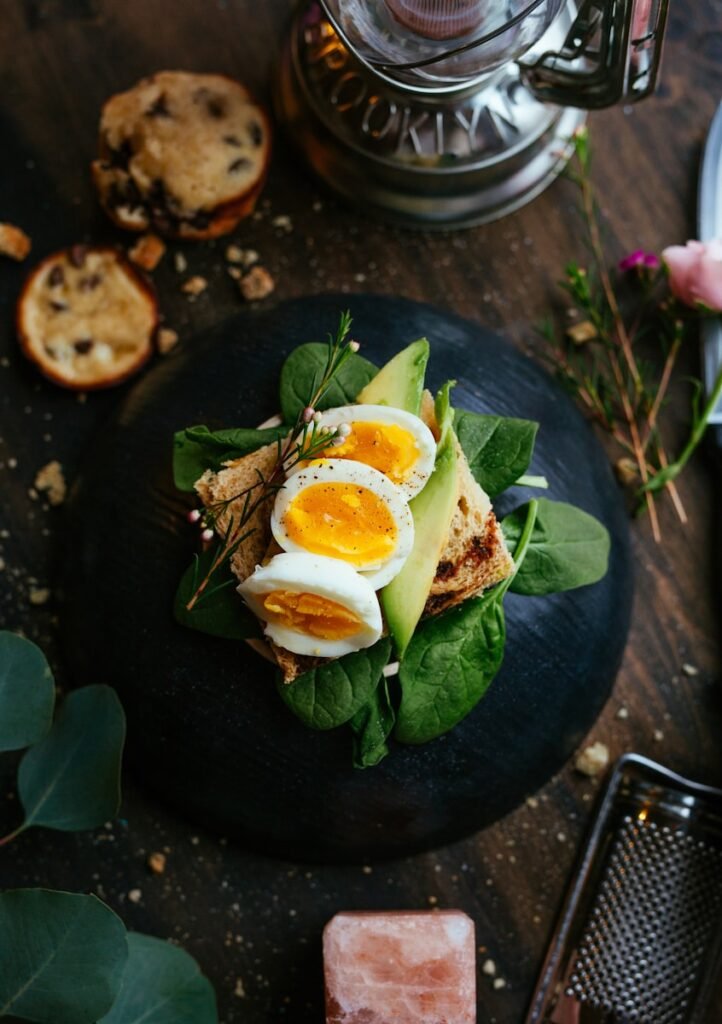
Conclusion and Buying Tips
When it comes to selecting the best pot for boiling eggs, several factors play a crucial role in making the right choice. Firstly, consider the material of the pot. Stainless steel is a popular option due to its durability and even heat distribution, while non-stick cookware can make cleaning easier. However, each material has its pros and cons that should align with your cooking habits and maintenance preferences.
Capacity is another significant factor. Whether you’re boiling eggs for a single meal or preparing multiple servings, the size of the pot matters. Smaller pots are convenient for daily use, whereas larger ones cater to family gatherings or meal prepping. Be mindful to pick a pot that fits comfortably on your stovetop and suits the volume of eggs you typically cook.
Ease of use encompasses additional features that can make your experience seamless. Pots with built-in egg racks, for example, provide better organization and prevent eggs from colliding. Handles that remain cool to the touch add safety, while clear lids allow you to monitor the boiling process without releasing heat. Such features enhance the functionality and user-experience of your cooking.
Ultimately, the best pot for boiling eggs is one that meets your specific needs and complements your cooking style. Weigh the pros and cons of each option in terms of material, capacity, and ease of use. If you are still undecided, refer to recommended products and reviews to help make an informed decision.
Ready to find the perfect pot for boiling your eggs? Explore our curated list of top-rated pots available on Amazon, and make your purchase confident in the knowledge you’ve chosen the best tool for the task.

